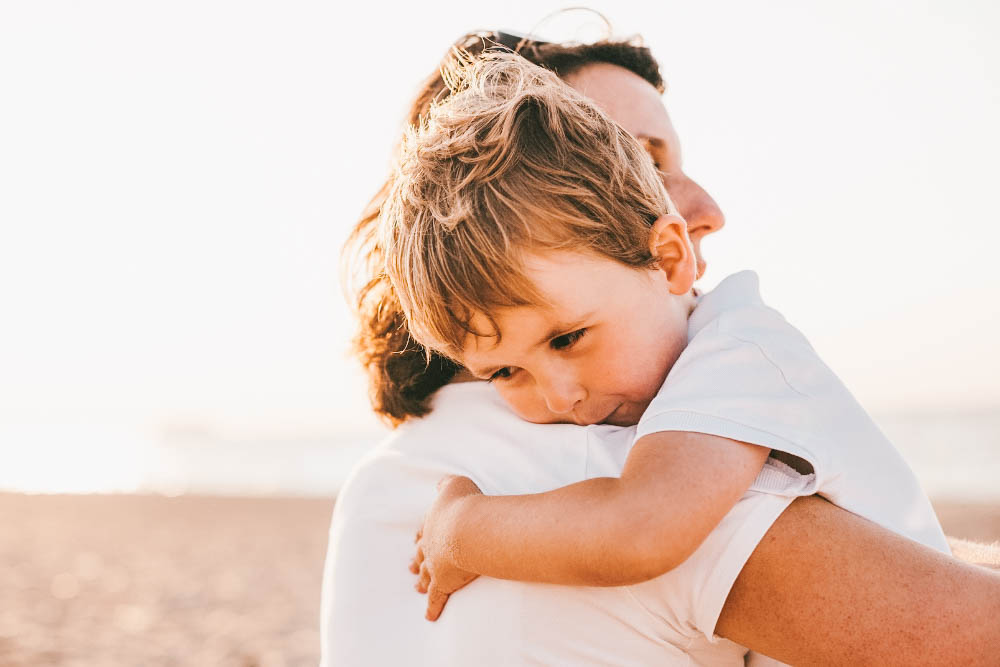
Decoding Kids’ Behavior
At Collide, we believe that God uses ordinary women to do amazing things. He meets us exactly where we’re at – in our mess, our pain, our joy, and our stories. We’ve been amazed at how He redeems our brokenness and empowers women in our community and beyond to walk in the confidence of their identity as beloved daughters. We’d love to introduce you to one of those women, Angi Soulier, who we’ve asked to contribute her voice, her story, and her wisdom to the Collide blog.
Angi has a soft spot for hurting humans (big and small) and knows the very real courage it takes to face off with deep wounds of the past. She is the founder of Tetherpoint, an organization that provides parent coaching and training to parents raising complex kids. In her own family, she has navigated various seasons of struggle and joy, and understands the willpower and tenacity it takes to show up and stay present when hard behaviors are showing up with kids.
If you are currently raising a human of any age, I’m going to go out on a limb and bet you’ll agree that parenting is one of the hardest- if not THE hardest- job in all the land. As a certified parent coach, I get the honor of walking alongside amazing parents striving to do their very best to understand, love, and support their kids well. Without a doubt, the most frequent request I get from my clients is, “tell me what to do about _____ behavior” (fill in the blank). As in, “give me the magic formula to make it stop!”
As parents, we can get discouraged and frustrated when troubling behaviors continue to roll out with stunning reliability despite having employed all the latest parenting interventions. We endeavor to find the magic strategy to fix the “problem”, but it’s often like throwing spaghetti at the wall to see what sticks! And we get a little frantic and fearful inside when seemingly, NOTHING STICKS! Understandably so, right? Most of us don’t enjoy the experience of rude words or objects flying at us, or a raging child flopping around like a fish out of water in the middle of Target or being iced-out by our stoic teenager who seemingly wants nothing to do with us. We tend to future-trip about where this problem behavior is going to land our kid, right? This is understandable given that we care so deeply about them and their future. However, it can be helpful to understand what behavior is…and what it really isn’t.
Let’s start with what it ISN’ T.
Our child’s (mis)behavior is NOT a reflection of the quality of our parenting. I know it’s tempting to tell yourself that your child’s flipping-out is clearly somehow your fault. After all, our culture has adopted the viewpoint that children’s “bad” behaviors = “bad” parenting. We so often internalize this flawed messaging and then proceed to flog ourselves for being a subpar parent. But, here’s the truth, parents: We are raising humans, not robots. This means we may teach, train, and pray all the ‘right’ things, and our kids will still sometimes behave in ways that are outside the values they’ve learned and sometimes even outside the span of their immediate physiological control (more on this in a sec). Parents, we can influence our kids’ behavior, but we cannot control it. This is maddening and freeing all at the same time.
Our child’s behavior is NOT predictive of their future. Most parents I know, including myself, have imagined their child incarcerated or jobless or friendless because of their current behaviors. This is normal. But, it’s not helpful. And it’s not even true, actually. Case in point: many of us were self-centered, snarky teenagers once, but the large majority of us turned out to be loving and kind humans that serve our families and communities wholeheartedly. The same will be true for the majority of our spirited little darlings. They’ll get there.
Our child’s behavior is NOT evidence of their flawed character or moral failure. They’re kids, and they’re still learning how to “be” in the world and how to get their needs met. They will continue to grow and mature, and their brain will someday be fully developed (thank you, Jesus!). Behavior is not about character. It’s about survival (read on).
Now let’s switch gears and talk about what behavior REALLY IS so that we can talk about what we can do to change it.
Behavior, my friends, is the language of unmet needs. It is a call for being seen. When we “see” our child, it tells their brains and nervous systems that they are “safe” because their needs will be tended to by a loving, attentive caregiver. Misbehavior happens to speak louder than ‘good’ behavior. It’s a quicker and more reliable way to garner the attention of the adults in the room. Children know this. Therefore, if our child uses misbehavior as a strategy to alert us to their deep and immediate need, can we fault them for it? No, not always. They are doing what God designed their bodies and brains to do: survive.
Parents, we can use our child’s behavior as a clue to inform us about what’s really going on inside. When we truly understand that behavior is a language that speaks a deeper need, we will be less likely to take their behavior personally and more likely to see and address the need driving the behavior. Parenting expert, Robyn Gobbel says that by doing this, “…it becomes so much easier to stay anchored in the truth that: Regulated, connected kids who feel safe, and of course, know what to do, behave well.”
What we learn from the growing field of relational neurosciences is that the brain is behind everything we do, including behavior. If we want lasting behavior change in our child, it is imperative that we focus on body and brain-based interventions that increase regulation, connection, and felt-safety in our child.
While there are many interventions we could talk about here, changing the way we see behavior is actually the MOST important intervention. Why? Because it changes the way we see our child. Which then changes the way we show up for our child in their distress (with love and compassion and curiosity). Changing how we see behavior takes practice and patience and a whole lot of grace. And loads of love and compassion turned inward as we endeavor to raise these little earthlings God has given us! It’s a HARD and HOLY calling, amen?!
Inevitably, there will be times when we are utterly befuddled, weary and defeated on our parenting journey. While working so hard to see and care for our children, sometimes WE are the ones who need to be seen and tended to! Friends, we have a God who sees US. He sees you. The Lord knows everything there is to know about you and your present brand of struggle, and He cares about it. Just as the angel of the Lord pursued Hagar in her deep distress (Genesis 16:1-16), He pursues us in ours because we matter to Him. And so does our child.
Contrary to what we may believe, we are uniquely designed AND equipped to parent the exact child(ren) we’re parenting. The enemy would have us believe otherwise, and he will do everything in his power to make it so. I encourage you, parents, to find the soul-tethering truths in God’s Word that anchor you in the hard moments of your parenting journey. Write them down and park your mind there when the baffling behaviors are rolling out with steady reliability; let them soothe and recalibrate your own brain and nervous system. I will leave you with the one I’m clinging to today: “My grace is sufficient for you, for My power is made perfect in weakness” (2 Cor. 12: 9). He is faithful to give us what we need when we need it. I am most assuredly needing His power in my parenting today!





